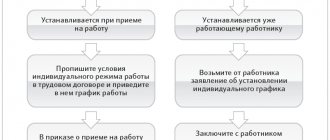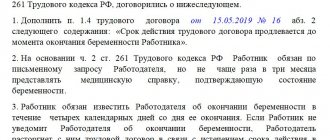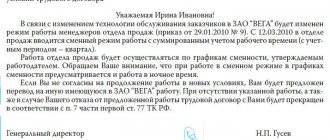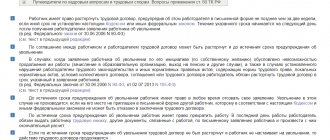Definition of irregular working hours, according to the Labor Code of the Russian Federation
An irregular working day is considered to be a special working time regime, implying the occasional involvement of individual workers in the performance of their labor functions outside the normal established hours of the working day (Article 101 of the Labor Code). Involvement in work occurs on the basis of instructions from management.
The irregular working hours regime has its own characteristics:
- is established if it is not possible to perform labor functions independently of the employee during normal working hours (for example, such a regime may be established for a legal service employee due to the need to participate in court hearings, the time of which may be set outside of his working hours);
- to engage in work that may begin before the start of the shift or end after its end, the employee’s consent is not required;
- all norms for starting and finishing work, recording working hours, providing days off and holidays apply to workers with irregular working hours on a general basis;
- An employee can be assigned irregular hours only for full working days and weeks, or for part-time working weeks with a full work shift (Part 2 of Article 101 of the Labor Code).
It should be noted that this mode of work involves occasional involvement in work outside of the shift. If the employer has included such a measure in the system, then this is already overtime work, implying appropriate compensation.
Irregular and flexible hours are not the same thing
First of all, let's pay attention to the distinction between an irregular schedule and another popular one - flexible. Their names have an obvious semantic similarity, and therefore these two modes of operation are often mistakenly identified.
An irregular schedule is one in which a person works full time (in general, 8 hours on a 5-day workday), but is occasionally involved in additional work (Article 101 of the Labor Code of the Russian Federation). How occasionally and for how long is determined by the employer himself, without asking the employee’s consent and without drawing up any documents (it is enough that the employment contract states that the schedule is not standardized).
If the working day is incomplete (less than 8 hours for a 5-day workday), then an irregular schedule cannot be used.
But it is possible - if the working week is short and the working day lasts at least 8 hours. For example, when a person works 3 days for 8 hours in a 24-hour week.
For being late for work when not on a regular schedule within the main 8-hour day, a disciplinary sanction may be lawfully imposed. An irregular schedule is not free (Letter of Rostrud dated June 7, 2008 No. 1316-6-1, Appeal ruling of the Moscow City Court dated November 26, 2015 No. 33-44271/2015).
A flexible schedule is one in which a person does not necessarily work 8 hours in a row. In agreement with the employer (which is reflected in the employment contract), he can distribute working hours in a variety of ways. The length of the working day can, in principle, be any - within the limits established by law.
And there are quite a few varieties of such boundaries. For example, there are limits on working hours for certain categories of workers. But even if a person does not belong to preferential categories, he, nevertheless, cannot “plow” around the clock: his rest between shifts should not be less than 200% of the duration of each shift (clause 10.24 SP 2.2.2.1327-03). And per week you need to rest for at least 42 hours in a row (Article 110 of the Labor Code of the Russian Federation).
All these boundaries apply to non-standardized and any other schedule according to the Labor Code of the Russian Federation.
With both flexible and irregular schedules, the main working day can be “extended” in a certain way. With a flexible schedule, a person may be offered paid overtime. That is, additional work in excess of the established working time norm (Article 99 of the Labor Code of the Russian Federation).
And with an irregular schedule, only occasional “attractions” are practiced. Overtime work cannot be performed.
Essentially, irregular hours and overtime are two parallel alternatives to extending the regular working day. There are either irregular “involvements” or overtime work - one of two things (Article 97 of the Labor Code of the Russian Federation, Letter of Rostrud dated December 2, 2009 No. 3567-6-1). A little later we will look in detail at the difference between “attractions” and overtime - it is important to know them.
For whom is it installed?
The employer has the right to independently determine the list of employee positions for which irregular working hours may be established. It must be agreed upon with the trade union (if there is one) and secured by a local act on the organization or a collective agreement (Article 101 of the Labor Code).
Restrictions are not established by labor legislation, however, the provisions of Art. 92, part 1-2 art. 94 of the Labor Code, which defines the circle of persons with certain characteristics of the labor regime.
Thus, it is not recommended to establish irregular work for the following categories:
- persons under the age of 18, including schoolchildren and students working during the holidays or combining work and study;
- disabled people;
- employees working in hazardous and hazardous industries (confirmed based on the results of the special assessment), including the establishment of reduced working hours for such employees.
Irregular schedule: who is allowed and who is not allowed
An irregular schedule is not compatible with positions of employees who have a limited working day. In such cases, “involvements” are unacceptable by definition - since they actually lengthen the working day, which by law will not be extended.
The list of employees with a limit on the length of the working day is listed in Art. 94 of the Labor Code of the Russian Federation: in relation to them, an irregular schedule cannot be established at all.
You should also take into account the provisions of Art. 92 of the Labor Code of the Russian Federation, where for some positions a reduced number of working hours per week is established. If it is full, then none of the days will last the required 8 hours - accordingly, an irregular schedule is not applicable here due to the part-time working day.
It is possible to conclude a “non-standardized” employment contract only for a position that is included in the list of “non-standardized” ones by a collective agreement or local regulations of the enterprise (most often, the manager’s order is applied).
The main rule when compiling a list of such positions is to remember why the schedule, in fact, is called irregular. And that’s what it’s called, as the labor inspectorate writes, if a labor function is not subject to regulation. And if it is, then the employer should use overtime work instead of “unstandardized work.”
To understand which positions are characterized by “irregular” labor functions, the employer can look at (and even apply by analogy) Resolution of the Government of Russia No. 884 dated December 11, 2002. It establishes the rules for vacations with an irregular schedule in federal government institutions and determines, in particular, that “non-standardization” is a characteristic:
- managerial, technical, business personnel and other persons whose work cannot be accurately accounted for;
- persons who distribute working time at their own discretion;
- persons with working hours that are divided into periods of indefinite duration.
Another standard that is useful (and applicable by analogy) when compiling a list of “non-standardized” positions is Order No. 146 of the Federal Social Insurance Fund of Russia dated June 22, 2009. According to it, such positions include almost all management positions, supervisors, accountants, consultants, and specialists of the Fund. And also a chef, a garage manager, a driver. Depending on the specific position, an “irregular” employee of the Social Insurance Fund may be provided with up to 14 days of additional leave - significantly higher than the minimum according to the Labor Code of the Russian Federation.
It is important to include in the list only those positions in which (Letter No. 14-2/OOG-8616):
- employees perform labor functions primarily during normal working hours;
- “attractions” will be exceptions to the rule.
An employee can only be “engaged” based on his job function, which is enshrined in the employment contract. If the function is different, then his contract for overtime work will have to be redone.
Now let’s talk about how to document the results of accounting for “attractions”.
List of positions for workers with irregular working hours
The legislation does not limit the employer to strict limits regarding the list of positions when establishing a special work schedule. But most often it is applicable to the following employees:
- management team of the organization;
- technical and business personnel whose work can positively affect the production process (for example, an adjuster will set up equipment before the start of a shift);
- employees involved in the work process when one-time situations require their resolution during non-working hours (for example, for civil servants - the execution of an urgent government task);
- dispatchers, employees of security organizations, logistics companies, etc.
A necessary condition is not just to determine the composition of positions, but also to formalize it in a regulatory act for the organization.
How many hours per week and per year is it acceptable to work?
Labor Code in Part 2 of Art. 91 establishes the normal weekly working time for any type of employer within 40 hours.
To determine the annual rate, a production calendar is published annually, which indicates the number of working days, weekends and holidays, as well as working hours in hours for different types of working weeks (40, 36 or 24-hour). All of them are broken down monthly, quarterly and annual figures are displayed.
Thus, in 2020, with a 40-hour weekly working time standard, the annual figure was 1970 hours.
How many hours per month for an 8 hour shift? Depending on non-working days, the number of hours per month varies - see the standard working hours in the production calendar.
The number of days on which it is permissible to occasionally involve workers in work within the framework of irregular work hours is not determined by law. But in the local act of the organization it is possible to stipulate weekly and annual limits.
An employee with whom an employment contract has been concluded using irregular working hours has the right to appeal to a judicial authority in the event that he believes that he is too often involved in such work. If the court considers that the nature of the involvement has become systematic, it will oblige the employer to recognize it as overtime work and pay appropriate compensation for it.
The occasional occurrence of work beyond the duration of the work shift is a subjective assessment. Some people think that 3-4 times a month is regular engagement, while others consider working an extra hour 2-3 days in a row once every two months as episodes.
Irregular hours and overtime work: what are the differences?
The differences are:
- Compatible with a variety of work schedules.
“Attractions” are, in fact, the main feature of an irregular schedule, distinguishing it from a flexible (not “hybrid” slave) and from all the others. If the employment contract specifies an irregular schedule, then “involvement” is automatically permitted. At the same time, overtime is prohibited.
And if an irregular schedule is not specified in the contract, then free labor in the form of “involvement” is impossible under it. And at the same time, overtime is allowed. Which, in principle, are compatible with any work schedule - except irregular ones.
- In agreement with the employer and remuneration.
Occasional “attractions” for irregular hours on weekdays (and during the daytime) are in no way agreed upon with the employer and are not paid. This is “free” labor, which the employer, depending on his needs and moral qualities, uses.
And “involvement” on a weekend or holiday, in turn, is always agreed upon (if there are no unforeseen circumstances provided for in Article 113 of the Labor Code of the Russian Federation). And it is always paid - in the prescribed increased amount relative to the regular salary (at least 2 times higher according to Article 153 of the Labor Code of the Russian Federation).
Attraction at night is not consistent. But it is paid, and at the same time, at least 20% higher than the usual salary (Article 154 of the Labor Code of the Russian Federation, Letter of Rostrud dated June 25, 2012 No. 929-6-1). Here the priority is the norm of Art. 154 of the Labor Code of the Russian Federation stating that night hours, as a special case of deviation from normal working conditions, require increased wages.
The fact that “involvement” on weekdays is not paid is partly compensated by the preference established by law specifically for an irregular schedule - additional leave of at least 3 days (Article 119 of the Labor Code of the Russian Federation). By the way, leave is given even if the person was not “involved” in practice - although, according to the contract, the employer had such an opportunity (Letter of Rostrud dated May 24, 2012 No. PG/3841-6-1). Instead of vacation, you can ask for compensation (Article 126 of the Labor Code of the Russian Federation).
The employer may, at its discretion, introduce a bonus for work during “non-standard” hours. It is mandatory to pay it to employees who have actually worked such hours (Article 149 of the Labor Code of the Russian Federation).
But it may not be entered - and then you don’t have to pay anything (not forgetting about additional vacation pay, of course).
As for overtime, they are:
- require mandatory written approval from the employee (again, unless there are unforeseen circumstances - in this case, according to Article 99 of the Labor Code of the Russian Federation);
- are always paid - at least one and a half times the salary (Article 152 of the Labor Code of the Russian Federation);
- paid at least 20% more than salary - at night.
Overtime work on a weekend or holiday is equivalent to “simple” work on a weekend or holiday - and therefore is paid at double the salary, in general terms.
Overtime work does not provide any vacation preferences.
- In the maximum processing time.
The duration of “attractions” with an irregular schedule is not limited by law. And the maximum duration of overtime work is 4 hours per day (no more than 2 days in a row), and no more than 120 hours per year.
Of course, the total duration of working hours, together with the main working day, is determined in all cases taking into account Sanpin’s “boundaries”.
- In the method of recording working hours.
It is necessary to keep records of overtime hours for both overtime and “involvement” (Letter of the Ministry of Labor and Social Protection of Russia dated October 29, 2018 No. 14-2/OOG-8616). It can be assumed that employers are required to be able to count working hours according to an irregular schedule specifically for cases of working on weekends, holidays and at night.
Overtime is recorded in timesheets T-12 and T-13 with a special designation - “C” or code 04. “Involvements” do not have their own code there, and this somewhat complicates their accounting (later we will look in more detail at what options there are for documenting them).
What compensation is provided in 2020?
Hours worked during irregular work hours are not subject to compensation.
Workers with an irregular work schedule are subject to all the requirements and rules that apply to the general work schedule. They are generally exempt from working on weekends and holidays. Therefore, on these days they can only be involved in work:
- with their written consent (except for situations where a call to work is related to the prevention of a disaster, an industrial accident, the elimination of their consequences, the prevention of accidents, as well as the performance of necessary work during a martial law or state of emergency, etc.) - Art. 113 TK;
- with increased wages (at least twice). At the request of the employee, it is permissible to pay it in a single amount and provide a day of rest on any of the working days - parts 1, 3, 4 of Article 153 of the Labor Code.
The legislation allows the head of the organization to independently determine compensation measures for employees who have an irregular working day. All of them are fixed by a collective agreement, labor agreement or local acts of the organization.
Differences between irregular hours and overtime: table
| Criteria | "Attractions" on an irregular schedule | Overtime |
| Coordination with the employee on weekdays during the day | Not required | Required (no - with exceptions under Article 99 of the Labor Code of the Russian Federation) |
| Coordination with the employee on weekdays at night | ||
| Coordination with the employee on weekends and holidays | Required (no - with exceptions under Article 113 of the Labor Code of the Russian Federation) | |
| Payment on weekdays during the day | Not produced | From 150% of the salary (and further according to Article 152 of the Labor Code of the Russian Federation) |
| Payment on weekdays at night | From 120% of salary (Article 154 of the Labor Code of the Russian Federation) | From 150% of the salary (and further according to Article 152 of the Labor Code of the Russian Federation) + 20% of the salary minimum |
| Payment on weekends and holidays | From 200% of salary (Article 153 of the Labor Code of the Russian Federation) | |
| Maximum processing time | Any (within Sanpin’s “borders”) | 4 hours per day (no more than 2 days in a row), 120 hours per year |
| Recording working hours | Required | |
| Method of recording working hours | Additional codes for forms T-12 and T-13, separate journal | Standard codes for T-12 and T-13 |
| Vacation | At least 3 days longer | Ordinary |
Occasional “involvements” on an irregular schedule can be reclassified as overtime work in court.
The fact is that according to the law, “involvement” can be, as we already know, of any duration; the employee’s consent is not required, and they are not paid above the norm. But, as law enforcement practice shows, the employer should not take these formulations at face value: an employee, indeed, through the court, can turn free “involvements” into well-compensated overtime.
Additional paid vacation days
All overtime resulting from irregular work hours is compensated to the employee by additional days of annual leave. At the same time, Art. 116, 119 of the Labor Code requires their establishment in the quantity determined by the company’s regulatory documents, but not less than three calendar days per year.
Additional paid leave is required to be submitted, regardless of whether or not the employee was involved in irregular work during the calendar period. It is required to be provided in the number of days established by regulatory documents.
It is permissible to replace additional vacation days with monetary compensation, but only with the consent of the employee and his written application. Replacement cannot be made for the categories established by Art. 126 Labor Code, with the exception of compensation upon dismissal.
The rules for regulating working hours with the establishment of irregular working hours in labor legislation are not clearly expressed. Therefore, the employer is obliged to carefully consider its application, since non-standardization can easily be reclassified as overtime work and overtime. And this already entails the use of special conditions of remuneration.
Registration of attraction to work beyond normal working hours
In irregular working hours, an employee is involved in work periodically by order of the employer. However, in Art. 101 of the Labor Code of the Russian Federation does not say how such an order should be drawn up. Based on this, we can say that the legislator also allows oral form. At the same time, we believe that oral instructions should only be used if the company has clearly established time tracking.
There are two positions regarding the fixation of overtime during irregular working hours.
Some experts believe that this is simply necessary, since according to Part 4 of Art. 91 of the Labor Code of the Russian Federation, each employer must keep accurate records of the working time worked by each employee. For this purpose, a work time sheet of the unified form T-12 or T-13 is most often used. Using magazines is also not prohibited.
If an employee is late after work, then most likely the employee entering information into the time sheet will go home earlier, and accordingly there will be no one to record the number of overtime hours. In such cases, it is advisable to issue a written order. In addition, you can stipulate in the job description or employment contract, for example, that an employee stays at work for two hours twice a month to prepare a report. But there is no need to establish a condition that you need to stay late every day or every other day. Otherwise, when an employee applies to the State Labor Inspectorate, inspectors recognize such periodic involvement in work outside working hours as a violation of labor legislation.
Other experts believe that indicating overtime on the timesheet leads to the possibility of confusing irregular working hours with overtime work, and if the accountant considers the mark on the timesheet to be information about overtime, he will pay for it.
We adhere to the first point of view, since no one has canceled the time sheet. And recording the time spent at work will help the employer track the frequency of going beyond the working day. In addition, time tracking will be useful in the event of any emergency - it will be possible to say for sure whether the employee was at work or not.
We recommend that you indicate the standard working hours of an employee with irregular working hours in the time sheet. And records of processing can be kept in a separate journal.
Order on approval of the list of positions
Despite the fact that the Labor Code does not contain a direct prohibition on hiring pregnant women for work with irregular hours, it is still not recommended to attract this category of workers, since the appointment of pregnant women to positions with irregular working hours is contrary to Article 93 of the Labor Code of the Russian Federation. She says that a woman has the right to a shorter working day.
Employment contract
Drawing up an employment contract is mandatory when applying for a job. When applying a regime of irregular working hours, an indication of it must be present in the agreement between the parties. By signing such an agreement, the employee agrees to the establishment of a special working day. It is also necessary to familiarize the new employee with all local regulations.
Sample employment contract
This condition must also be indicated in the employment order.
Order for employment with irregular working hours
It is worth remembering that any employee, be it a worker or a director, can be involved in additional work only to fulfill their job duties. The performance of other types of activities must be formalized as a separate agreement.
Sample order
It is worth noting that if an employment contract has been concluded with an employee for a position that is not in the approved list of professions with irregular working hours, then this condition is unlawful. Consequently, the employee has the right to refuse to work beyond the working hours and on this basis he cannot be brought to disciplinary liability.
Free legal consultation We will answer your question in 5 minutes!
Call: 8 800 511-39-66
If an employee is transferred to a position for which irregular working hours are established, then the employer should:
Free legal consultation
We will answer your question in 5 minutes!
Ask a Question
- familiarize him with local regulations containing a list of positions with irregular working hours;
- conclude an additional agreement to the employment contract to include conditions for irregular working hours and compensation for this type of work;
- issue an appropriate order (in free form).
If the employee’s condition on irregular working hours is excluded, then the employer must enter into an additional agreement with him, which will contain a different work schedule, and issue a corresponding order.








